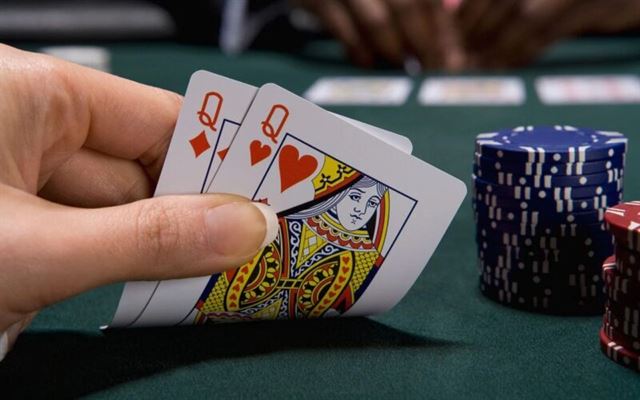Craps is a popular casino game that has been enjoyed by players for centuries. It is often referred to as the ultimate game of chance, but some argue that skill can also play a significant role in the outcome. In this article, we will debunk some of the myths surrounding craps and explore whether it is truly a game of chance or skill.
The History of Craps: From Street Game to Casino Favorite
The history of craps can be traced back to the early 19th century in New Orleans. It was originally played on the streets by African Americans, who used dice made from animal bones. The game quickly gained popularity and spread throughout the United States, eventually making its way into casinos.
In the early days, craps was a game that required little skill. Players would simply roll the dice and hope for the best. However, as the game evolved and became more popular, players began to develop strategies and techniques to improve their chances of winning.
One of the key developments in the history of craps was the introduction of the “don’t pass” bet. This bet allows players to bet against the shooter, which can be a strategic move if the shooter is on a winning streak. This bet requires a certain level of skill and understanding of the game, as players need to know when to place this bet and when to stick with the more traditional “pass” bet.
Another important development in the history of craps was the introduction of the “come” bet. This bet allows players to place a bet after the point has been established, giving them another opportunity to win. Again, this bet requires a certain level of skill and understanding of the game, as players need to know when to place this bet and when to stick with the more traditional “pass” or “don’t pass” bets.
Over the years, craps has continued to evolve and adapt to the changing times. Today, it is a game that is played in casinos all over the world, and it has even made its way into the online gambling industry. The game has become more complex, with a wide range of betting options and strategies available to players.
Despite its evolution, craps is still a game that is largely based on luck and chance. The outcome of each roll of the dice is determined by random chance, and there is no way to predict or control the outcome. However, skilled players can use their knowledge of the game and the various betting options to improve their chances of winning.
Understanding the Rules and Strategies of Craps
To understand craps, one must first grasp the basic rules of the game. Craps is played with two dice, and players take turns rolling the dice. The objective is to predict the outcome of the roll, which can result in a win or loss depending on the bets placed. The game is played in rounds, with each round consisting of two phases: the come-out roll and the point phase.
During the come-out roll, the shooter (the player rolling the dice) aims to roll a 7 or 11 to win. If they roll a 2, 3, or 12, they lose. Any other number rolled becomes the point, and the game moves into the point phase. In this phase, the shooter continues to roll the dice until they either roll the point number again to win or roll a 7 to lose.
Now that we understand the basic rules, let’s explore the strategies that players can employ to improve their chances of winning. One popular strategy is known as the “pass line” bet. This bet is placed before the come-out roll and wins if the shooter rolls a 7 or 11. It loses if the shooter rolls a 2, 3, or 12. If any other number is rolled, it becomes the point, and the player can place additional bets to increase their potential winnings.
Another strategy is the “don’t pass” bet, which is essentially the opposite of the pass line bet. This bet wins if the shooter rolls a 2 or 3, loses if they roll a 7 or 11, and pushes (neither wins nor loses) if they roll a 12. The advantage of this strategy is that it has a lower house edge compared to the pass line bet, making it an attractive option for some players.
In addition to these basic strategies, there are numerous other bets that players can make in craps, each with its own set of odds and potential payouts. These include the “come” and “don’t come” bets, the “odds” bet, and various proposition bets. Understanding the odds and payouts associated with each bet is crucial for making informed decisions and maximizing one’s chances of winning.
While there are certainly strategies that can improve a player’s odds in craps, it is important to note that luck still plays a significant role in the game. No matter how skilled a player may be, they cannot control the outcome of the dice. However, by employing sound strategies and understanding the odds, players can increase their chances of winning and minimize their losses.
The Mathematics Behind Craps: Analyzing the Odds and Probabilities
To understand the mathematics behind craps, we must first examine the basic rules. The game is played with two dice, and players place bets on the outcome of the roll. The shooter, the person rolling the dice, aims to roll a specific number, known as the point, before rolling a seven. The various betting options in craps offer different odds and probabilities, making it crucial to understand the mathematics involved.
One of the most common bets in craps is the Pass Line bet. This bet wins if the shooter rolls a seven or eleven on the come-out roll, and loses if they roll a two, three, or twelve. Any other number becomes the point, and the shooter must roll that number again before rolling a seven to win. The probability of winning a Pass Line bet is approximately 49.29%, while the probability of losing is around 50.71%.
Another popular bet in craps is the Come bet, which is similar to the Pass Line bet but can be placed at any time during the game. The probabilities for winning and losing a Come bet are the same as those for the Pass Line bet. However, the odds for winning are slightly different due to the different number of ways to roll a seven compared to the point number.
The odds in craps are determined by the number of ways a particular outcome can occur compared to the total number of possible outcomes. For example, the odds of rolling a seven are 1 in 6 since there are six possible combinations that can result in a seven. Understanding these odds is crucial for making informed betting decisions in craps.
One bet that stands out in craps is the Field bet. This bet wins if the shooter rolls a two, three, four, nine, ten, eleven, or twelve and loses if they roll a five, six, seven, or eight. The probability of winning a Field bet is approximately 44.44%, while the probability of losing is around 55.56%. Despite the seemingly attractive odds, the Field bet has a higher house edge compared to other bets in craps, making it a riskier option.
It is important to note that while understanding the mathematics behind craps can give players an edge, it does not guarantee consistent wins. Craps is still a game of chance, and luck plays a significant role in the outcome of each roll. However, having a solid understanding of the odds and probabilities can help players make more informed decisions and manage their bankroll effectively.
Debunking the Myths: Is Craps Truly a Game of Chance or Skill?
One of the most common misconceptions about craps is that it is purely a game of chance. Many people believe that the roll of the dice is completely random and that there is no way to influence the outcome. While it is true that the roll of the dice is unpredictable, there are certain strategies and techniques that skilled players use to increase their chances of winning.
One such strategy is known as dice control. Dice control involves holding the dice in a specific way and throwing them in a controlled manner to increase the likelihood of landing on certain numbers. This technique requires a great deal of practice and skill, but many craps players swear by its effectiveness. While there is no scientific evidence to support the claims of dice control, many experienced players believe that it can give them an edge over the house.
Another myth surrounding craps is that betting systems can guarantee a win. There are countless betting systems out there that claim to have the secret formula for beating the odds in craps. However, the truth is that no betting system can overcome the inherent house edge in the game. The house always has an advantage in craps, and no amount of strategic betting can change that. While some betting systems may help players manage their bankroll or minimize losses, they cannot guarantee a win.
It is also important to note that craps is a social game, and the atmosphere at the craps table can greatly influence the outcome. Many players believe in the concept of “hot” and “cold” tables, where a table that has been winning consistently is considered “hot,” while a table that has been losing is considered “cold.” While there is no scientific evidence to support these claims, many players find that they have better luck at certain tables or with certain dealers. This could be due to a variety of factors, such as the energy of the table or the skill level of the other players.
In conclusion, while craps is often seen as a game of chance, there are elements of skill and strategy that can influence the outcome. Dice control and certain betting systems may give players a slight advantage, but they cannot guarantee a win. The social aspect of the game and the atmosphere at the craps table can also play a role in the outcome. Ultimately, craps is a game that combines luck and skill, making it a thrilling and unpredictable experience for players.









